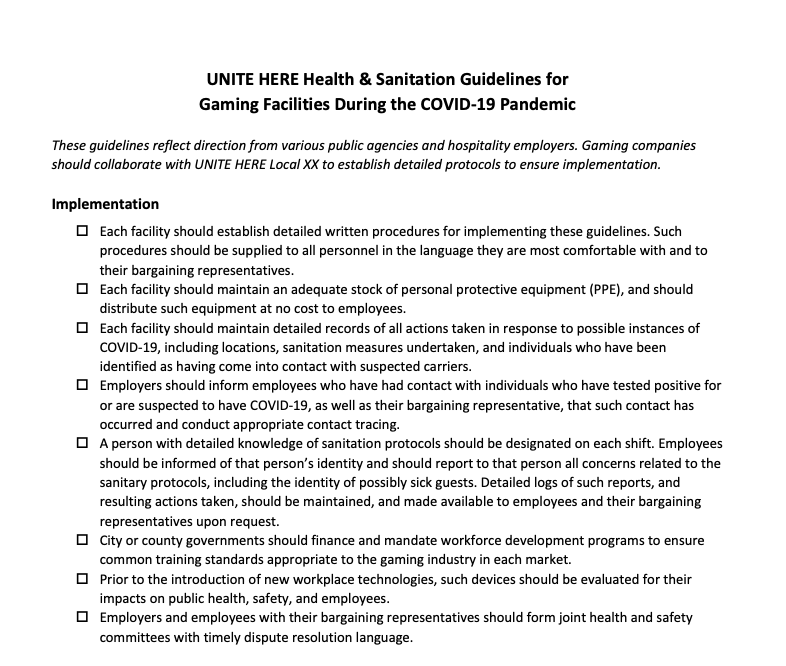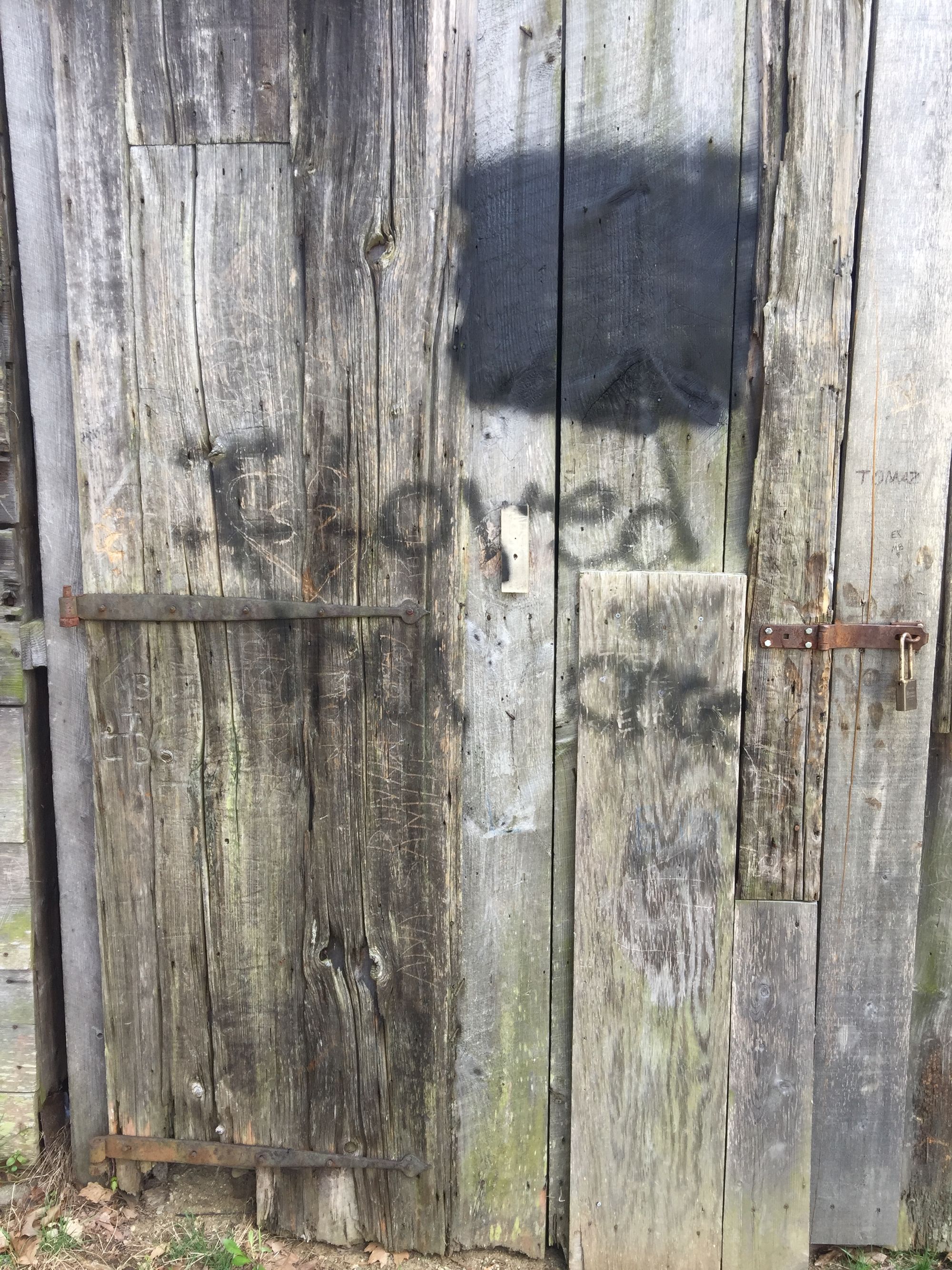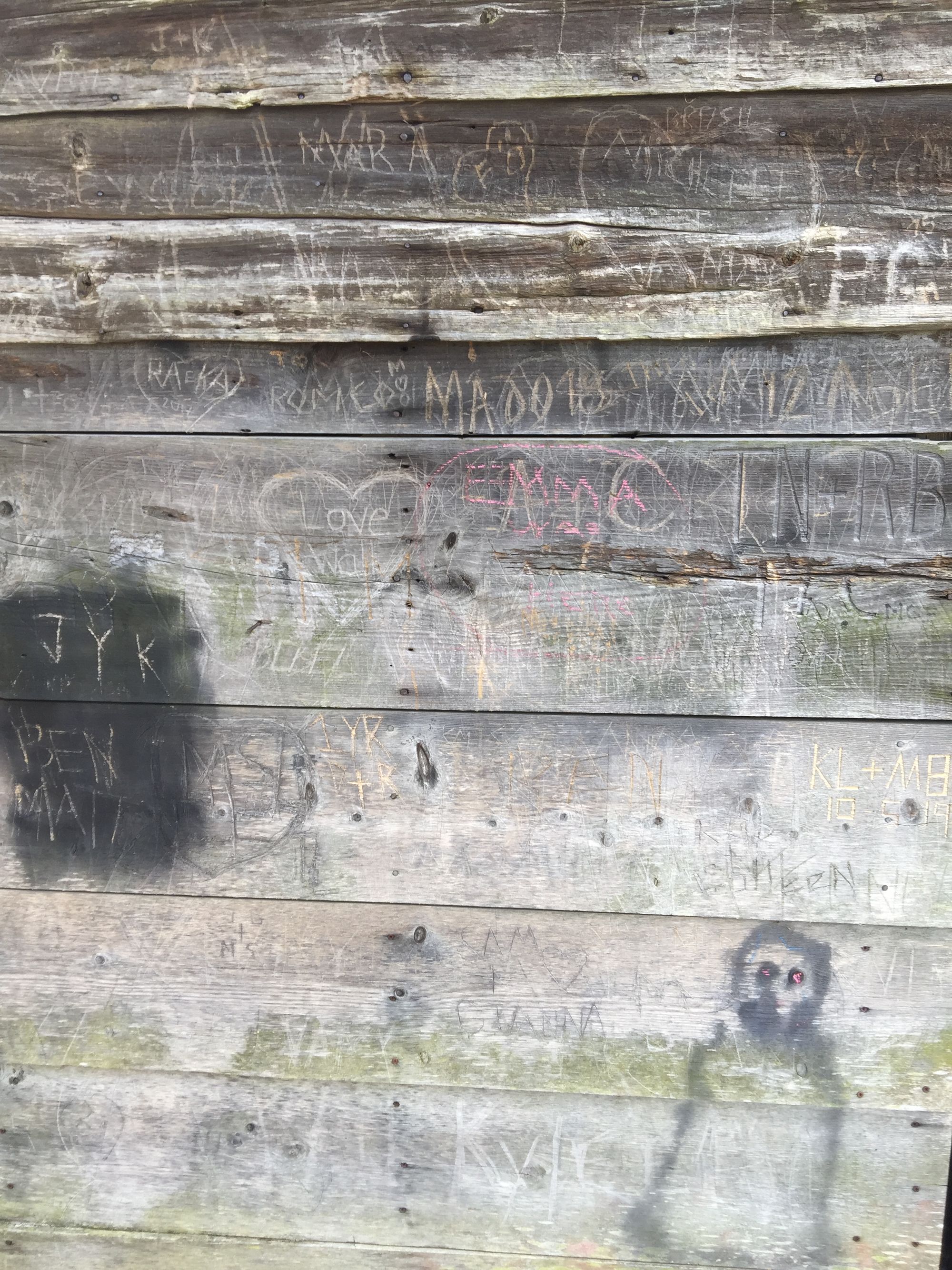The summer is gone the fall looks like it’s in danger
There are real optimists out there and people who in my mind are more realistic

We went for a walk the other day and I took some pictures
For today’s Hell World I spoke with Carlos Aramayo the president of UNITE HERE Local 26 a union that represents some 12,000 hospitality workers at hotels in greater Boston and Rhode Island as well as food service workers at universities, Fenway Park, and the Encore and Twin River casinos.
“As the hotel industry contemplates reopening in Boston, UNITE HERE Local 26 believes the lives of our members, their families, and the public are more valuable than the bottom line of hotel owners,” they said in a press release.
“We think there should be a slow, phased, deliberate interim period once [the government lifts restrictions], where employees are only working on a volunteer basis, without prejudice to their employment,” Aramayo told me.
“The reason for that is we have a lot of members who themselves have preexisting conditions that create comorbidity for Covid 19, and a lot of people living in multigenerational households. A majority of our members are black and brown first generation immigrants. We don’t want people to feel like because I’m going to lose unemployment I have to go to work, and then my mother is going to get sick at home. That’s the last thing we want.”
The union also more recently released pages of conditions they would like to see met before hotels can be reopened which you can see here if you like but read in part like so:

I asked Aramayo about the general state of the hospitality industry under the pandemic, how the union’s members are doing, and what needs to happen before some semblance of normalcy can return.
First some of my other mopey shit.

So I guess the Trump administration’s plan is to hide the bodies and pretend they're not piling up like we did with Iraq?
I briefly convinced myself that there is some number of deaths some horrific massive number with real gravity to it that demands attention and action a tipping point type of number that we might reach whereby Republicans and “open the economy” types might stop acting like they are now. Is it 500,000 I wondered is it a million but if we’re being honest no such number likely exists. Instead what will happen is we will come to accept thousands dead every single day as another voice in the churning ambient chorus of suffering we do our best to tune out already much like with gun violence or unnecessary deaths due to the cost of healthcare or the thousands our military kills around the world. Many of us even the “good ones” like me and you already have started to do that in a way right or else how would we manage to function on a daily basis? How do you get up and measure out the coffee and heat up the water and poke your stupid face into the fridge for a nice piece of fruit every morning without pretending if at least for a while that no one is dying outside your walls?
I said this about gun violence back in August in between the shootings in El Paso and Dayton — do you remember which those ones were or did it take a second? — and I suppose that’s just what deaths from the pandemic are going to be like going forward.
Until it happens to you or someone you know and then it’s real.
Another interesting overlap I’ve noticed of late concerning the ways the right talks about gun violence and the pandemic is the phony appeals toward mental health awareness. It’s something I’ve been seeing a lot online people saying that keeping everyone inside and out of work is bad for their mental health and it’s going to lead to suicides and such and that may be true to some extent but I’m sorry I find it very hard to believe in the sincerity of that coming from those types of people.

I loved you once
You may have missed this paid-only Hell World from the other day that was largely about the dissonance of living in Trump Country in Massachusetts and how misleading the stereotype of the state being filled with liberals is and about fucking Joe Kennedy and his shitty primary challenge against Ed Markey so subscribe and check it out if you like. I may be doing more paid-only posts than usual for a while I haven’t decided on that yet. It also includes a podcast interview you can listen to that I did with the great Jed Lund where we talked about food delivery ethics and addiction and smoking and turning off CNN and dread and the politics of Parks and Recreation and Massachusetts versus Florida history textbooks and Brady and Gronk in Tampa and the time Michael Stipe ruined his birthday.
I think this is the longest I’ve gone between sending out a free Hell World ever so I’m either sorry or you’re welcome for the break. I saw someone say recently that being a leftist means being right about everything all the time but it fucking sucks and that’s about how I feel lately.
I hit a weird sort of wall the past week where nothing really matters much and nothing brings me any sense of relief or pleasure. I’m not taking any solace from reading or watching TV or drinking or making dinner or sleeping or going for a run or jacking off anymore it’s all bountiful and constantly available and so the things we look forward to under normal circumstances have kind of lost their luster. More than usual that is because that’s sort of how I’ve always been as long as you’ve known me. This has all been like finding a separate basement in your already spooky basement that leads to a sub-subterranean chamber and you’re not entirely sure you want to find out what it holds. It’s the same way I’ve always known America was a charnel house of horrors designed to torture the poor but I somehow know that more so than I did in say February. And that’s all while living at home farting around on the computer all day like a relative fucking king compared to millions so I guess I should shut the fuck up and enjoy my life of luxury.
Anyway here’s a video of a bunch of people in Florida protesting that they can’t go to the gym to exercise by… exercising.

Everyone has of late discovered or finally admitted what has been pretty clear for a while now which is that Guy Fieri whips ass. The latest batch of praise comes as the absolute king has raised over $20 million along with the National Restaurant Association Educational Foundation distributing more than 40,000 grants to those in the restaurant industry who have been struggling.
Just for the record I was ahead of the game when it comes to Guy Fieri respecting as I wrote in this piece five years ago jesus christ five years when I went to watch him and Tom Brady and a bunch of other celebrities play flag football for charity. My impression of Brady on the other hand has sort of gone in the opposite direction since then.
The only face that seemed more enthusiastic on the sidelines than the buddies was Fieri, who has been a long time participant of the event, and helped corral a team of Boston's best chefs for the event. "Brother, you have stumbled upon one of the greatest charity events," he gushed. Fieri has played in the game for the last five years, but was sidelined this year with plantar fasciitis. "Ever had that? It's a nightmare, dude."
Just a few years ago, Fieri was outside the game at a grill with some friends passing out appetizers to people as they walked by, but it's grown immensely since then, he said. "It's great, not just because of the money that's raised, but because of the awareness that it brings," he said. "I gotta tell you something: Shriver is a genius, Brady is incredibly generous. All the players that come out, all the celebrities that come out, everybody gets behind us." It's easy to be snarky about Fieri, but, even as a cynic who's not easily charmed by famous people, he stood out as one of the most sincere and genuine celebrities I've ever met. We chatted at length over the course of the night, including about the late Esquire food writer Josh Ozersky. Fieri eagerly stopped to pose for photos with anyone who asked—and they all asked.

Ok here’s me and Carlos Aramayo of UNITE HERE Local 26.
What exactly is the situation with hotels in the area right now? Are they all dark, or are some open? Are some people working?
Back of the napkin, 95% of our membership is currently laid off. There are a handful of hotels open for essential service personnel, mostly around Logan Airport. There are a handful of folks working at university cafeterias with a small number of students who couldn’t get a home after campuses closed. We have a small number at the catering facility at Logan Airport, and a handful at the Boston Hope Medical Center at the Boston Convention Center. Everyone else is on layoff.
By laid off does that mean they aren’t getting paid at all and are having to rely on unemployment insurance?
When this all started we laid out a set of principles on how to handle the pandemic. One of them deals with income. The first was we didn’t want anyone to lose health insurance. We have extended health benefits through the summer through the union health trust as a start. We did go to employers and ask them to continue to pay people, because obviously no one could have predicted this would happen. There are some employers who did agree to do that: Harvard, MIT, Tufts, Encore casino. Twin River did for a little while but have stopped since then. Outside of those everyone is relying on unemployment. At the union we set up a hotline where we are basically trying to triage everyone who's been laid off in the two states to make sure they get it. We’ve kind of converted into an organization that’s providing that service for our members.
Have you had luck? I hear from lots of people who have had trouble getting through.
With 12,000 people you are gonna have some folks with challenges. I think the system has been somewhat overwhelmed given the number of people who are applying. But with persistence we’ve been able to work through most of the challenges that have come up. With the vast majority of people there weren’t any issues, but it’s important to us to make sure every single member is alright through this whole crisis. We’re working on that every day.
We’ve heard stories about some big hotel chains taking funds from the government meant for small businesses. Have any of the hotels you guys work at done anything shady like that?
It wasn’t our property, but Ashford Hospitality represents workers of the BackBay Hilton. We actually never figured out if they got that loan before they ended up returning it all once it became a big scandal. I know they applied for it for a lot of their properties.
Nothing else like that then?
No nothing shady. There were a couple smaller hotels who got the loans, but they’re doing the right thing and paying their employees. They were legitimate hotels owned by one person, with like seventy employees, so who it was intended for.
How do you think the shutdown of the hospitality industry was handled in general? After the Biogen conference thing it seems like it was business as usual for a while. Do you look back on that and say it could’ve been done better, from the government on down?
There are a lot of people talking about reopening right now, and we think there really needs to be regulation from the state and the city to guide the industry. What we saw in March was really a hodgepodge of reactions to what was going on, some of which should be applauded and some which were not particularly thoughtful. From our perspective, we saw an industry that is going to need real regulations and guidance on how to think about health and safety during a pandemic. The Biogen conference is a good example. When that happened it put a black eye on the whole industry. That was one property. Many properties that had nothing to do with that obviously were very heavily impacted by that. As we think about reopening, there may be companies, even ones like Marriott who had a really negative experience, who are trying to think about doing the right thing. But if there’s another company across the street that doesn’t do the right thing, and there ends up being a big outbreak, it’s going to shut the whole industry down again.
There’s a big difference between protocols and guidelines and regulations. We think there needs to be regulations. And they’ll sunset, they’re not forever, but regulations that deal with how work is assigned, social distancing, high touch areas, room cleaning, when events should be allowed to be open. We’re an industry that relies on gatherings of large numbers of people, folks traveling and moving from place to place. It’s a lot of the flags for stuff that could lead to transmission of the virus. In some ways an industry like ours needs to look at health and safety in a way like maybe coal miners did in a different era. There will really be challenges at least until there’s a treatment or a vaccine. That’s why I think regulations will be really important. I don’t think our industry will be able to regulate itself even with the best of intentions.
Are there any stories of management disregarding safety in the lead up to this that affected your members?
There are two things that leap to mind. One, from the business community’s perspective, there is this rush to open. The Chamber of Commerce and the Hotel Lodging Association have really been beating the drum of reopen. We have had some employers try to jump the gun on that, and we’ve had to, pretty heavy-handedly, try to get them to not do that. As an example, the Logan Hilton is still open. I get it, it’s the airport hotel. They have 5-10% occupancy on a daily basis. There’s no reason why another hotel needs to open right now in the city of Boston. There’s no business logic for it, never mind health and safety. I do think these places are under a lot of pressure, they want to pay their debts, they want to figure out how to service their mortgages, so they’re trying to jump the gun on reopening, and it really puts the health and safety of the employees at risk. Frankly it flies in the face of what the mayor is asking for. He doesn’t want people congregating. Why call twenty five people into work if you don’t need them? So we’ve had some challenges with that, but fortunately we’ve been successful at pushing back.
The second thing that’s been very challenging for us is at the airline catering facility. I know the Globe reported on this, the Sky Chefs Network, a national company that puts food on planes, had really serious issues with outbreaks. Here at our facility we had fifteen people hospitalized, and sadly one of our members passed away. In New York it was a much worse situation. Obviously it’s an interconnected system. I know they had a lot of problems with PPE, with social distancing in the kitchen. On the good side, at the Convention Center, we worked out our best agreement on how to work on health and safety. It’s an environment now where they’re running a hospital effectively. The food is being prepared offsite, they’re maintaining six feet between kitchen stations. They’re temperature checking every day. They have a protocol where they interview everyone every day. They’ve granted extended sick leave to people…. That has been a bright light, and frankly a model we’re looking at exporting to other places as we look to reopening.
You put out a lengthy list of things you want to see happen before people go back to work. Can you highlight a few of them?
Testing and tracing is the main one. I know that’s a challenge, but it’s almost a predicate. If we can figure that out a lot of the stuff becomes easier. Outside of that we feel like the reopening needs to follow the outbreak. If we are moving in the right direction, and it looks like you can have larger gatherings, that makes it easier to think about reopning. If we’re moving in the wrong direction we don’t think it’s appropriate for folks to be going into work. Once they are at work we really want to emphasize the need for cleaning of public spaces, and a significant overhaul of how they and the rooms are cleaned. That’s going to increase the workload on our members, so we also want to make sure it doesn’t result in an undue burden on them.
There are things I think are good that I know Marriott and Encore are looking at. They have these things that spray curtains and rugs rather than vacuum them. They almost look like Ghostbusters packs when you put them on. We think that’s a good idea, it’s just a whole new amount of work our employees are going to have to do, so we want to be sensitive to that. Also PPE where necessary, social distancing, screens at front desks. Having a dedicated person opening and closing doors. Elevators are a big challenge, trying to figure out how to manage that. Encore is already saying they’re going to put masks on employers and require them for guests.
I think industrial kitchens are going to be a challenge. A lot of the universities are pushing to open in the fall and a lot of those places, their smaller, older kitchens in the dorms, aren’t designed to have six feet between stations. It’s just impossible to do. So there’s stuff we’ll have to figure out about offsite cooking that will help maintain social distancing while people are at work.
What about when people are sick or worry they might be?
The sick days thing is going to be crucial. We normally negotiate above the state minimum. We have ten paid sick days in our contracts, but still people choose to go to work sick. They don’t want to use them. We’ve gotta figure out a solution to that. I think there’s so much pressure, both in the culture and economically, for people to go to work sick, so we’ve gotta figure out a way to let that go a little bit. I don’t see how this will work in the long term otherwise.
We need a reframing of how we as a country think about work. People with sick days don’t want to take them because they think it might reflect poorly on their work ethic or whatever.
So what’s a reasonable date to expect hotels to be anything like we once knew?
If you could get an answer on that from anyone please tell me! It’s such a moving target. There is a set of restrictions on hotel use and travel in the state now. We don’t think there’s any need, especially in the Boston area, to reopen until that gets lifted. That’s a question about travel and tourism, and I think it will be some time before that happens. We think there should be a slow, phased, deliberate interim period once that happens, where employees are only working on a volunteer basis, without prejudice to their employment. The reason for that is we have a lot of members who themselves have preexisting conditions that create comorbidity for Covid 19, and a lot of people living in multigenerational households. A majority of our members are black and brown first generation immigrants. We don’t want people to feel like because I’m going to lose unemployment I have to go to work, and then my mother is going to get sick at home. That’s the last thing we want. So we think there needs to be a transition period where work is volluntary. If employers want to create incentives, that’s fine. So once we get through that, hopefully the medical science advances in some significant way and we can start to look at something normal.
So it’s going to be a while.
We’ve got events canceling in the fall. The hotel industry is very significantly events driven. I wouldn’t be surprised if there’s not some recovery until next spring. The summer is gone. The fall looks like it’s in danger. It’s very hard to predict obviously but I wouldn’t be surprised if next spring is the first season where things start to look a little more like they have.
Whenever we’re back to normal, year from now, whenever it is, are we going to see a lot of places having closed in New England and around the country? Hotels, casinos etc?
It would be better to ask someone on the business side, but bankruptcy is not very normal in the hotel and gaming industry.
Unless you’re the president running a casino.
Right! Unless you’re the president running a casino. But they’re good investments. You’re buying the real estate and the property that generates value under a normal economy. So often what ends up happening is if a company gets into debt distress, a private equity company will sweep in and take all the debt and the property and keep it. That’s how things have worked in the last few cycles. I’m assuming that’s what will happen this time too, maybe a little more dramatically. Historically the properties have been such good investments that somebody’s always there to buy them if they get in enough trouble, which is so cynical, but that’s how they work right?
It’s like I always say, thank god for the private equity guys.
Right!
Here’s the thing. Let’s say they said you could go to the hotel bar tomorrow, I’m not going to do that. Do you think a significant number of people, once hotels are open, will continue to wait it out?
I really don’t know. From talking to colleagues around the country, the northeast seems like the hardest hit area. Our affiliate in New York is the worst situation, but I think we’re a pretty close second at this point, both in terms of the spread of the virus and the economic impact on our industry. So I am hard pressed to see, until there can be a real demonstration that it’s safe to do so, some company deciding to book their next big conference here in Boston. That day will come, but there’s work that the industry is going to need to do to rebuild that consumer confidence. Maybe places where there’s been less of an outbreak people might be inclined to book something there. But because of Biogen and the overall numbers we’re going to have to do some real work here. Especially for the business public, which is where a lot of the revenue comes from.
There are real optimists out there, and people who, in my mind, are more realistic about how long this is going to take to turn around. The thing I worry about, with the optimist line, is that it really just takes one bad thing happening to turn it all on its head. The likelihood of that happening from what I’ve read, and maybe I’m wrong, is relatively high.
